When it comes to choosing a canine companion, the temperament and personality of a dog breed can significantly influence its compatibility with potential owners. While many dog breeds are known for their family-friendly nature and love for children, others tend to form stronger bonds and show a preference for adult companionship. These breeds, often characterized by their independent nature, high intelligence, and sometimes a more reserved demeanor, may not possess the patience or energy levels suited to the unpredictable and often boisterous nature of young children. Understanding these preferences is crucial for prospective pet owners, as it ensures a harmonious match that benefits both the dog and its human family. This exploration delves into seven dog breeds renowned for their preference for adults over kids, shedding light on their unique characteristics and the reasons behind their adult-oriented affection.
1. Afghan Hound
The Afghan Hound, with its noble demeanor and striking appearance, is a breed that epitomizes elegance and dignity. Known for their independent and sometimes aloof personality, Afghan Hounds develop deep bonds with their adult owners, often showing a preference for a calm and predictable environment. This breed is not only sensitive but also highly intelligent, requiring regular engagement and mental stimulation that adults are more likely to provide consistently. Their long, luxurious coat also demands regular grooming, a task that requires the patience and thoroughness often found in adults. While Afghan Hounds can coexist peacefully with children, their preference leans towards the companionship of adults who respect their boundaries and understand their need for quiet and space.
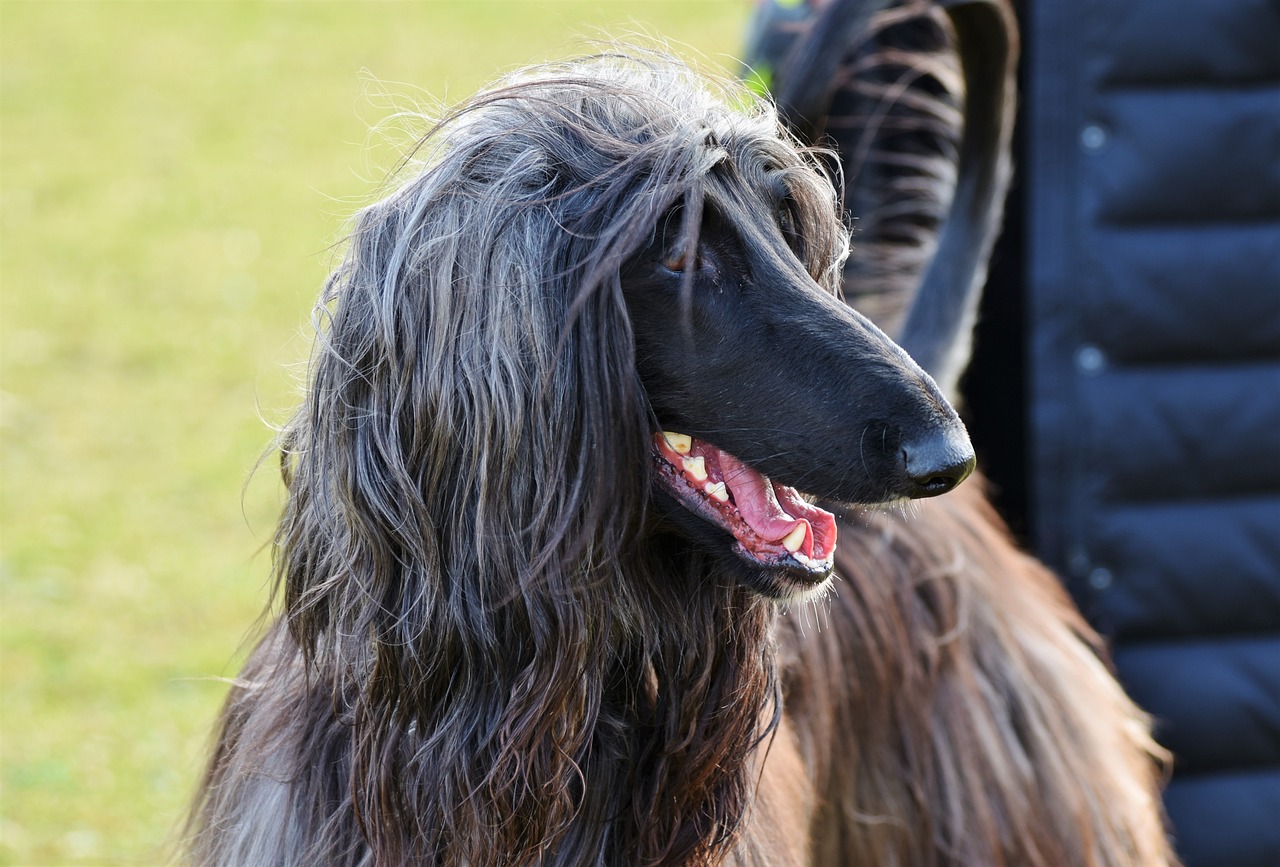
2. Chow Chow
Chow Chows are distinguished by their lion-like mane and stoic personality. This breed is known for its loyalty to its family but also for a certain level of reserve when it comes to strangers and even familiar faces, including children. Chow Chows thrive in environments where they can maintain a sense of autonomy and are not fond of the unpredictable nature and noise that often accompany young children. They require an owner who understands their need for independence and respects their space, traits more commonly found in adults. With proper socialization, Chow Chows can become more accepting of children, but they naturally gravitate towards the company of adults.
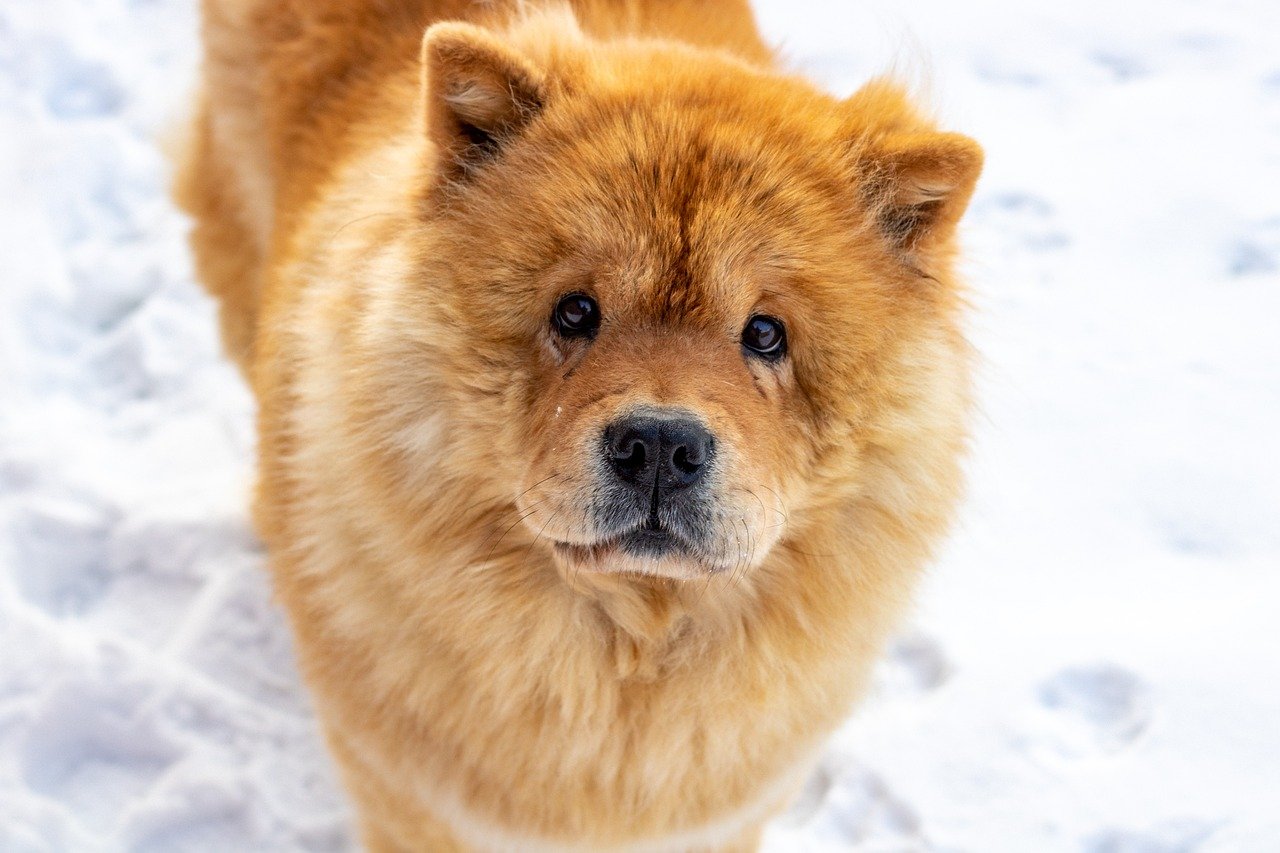
3. Shar Pei
The Shar Pei is recognizable by its deep wrinkles and serious expression, embodying a spirit of independence and self-sufficiency. Originally bred for hunting and guarding, this dog carries a strong instinct to protect its family, a task it takes very seriously. The Shar Pei tends to be suspicious of strangers and prefers a quiet and predictable household, aligning more closely with adult lifestyles. Their socialization needs are significant; without proper exposure to various people and situations, they can become overly protective. Adults are typically better equipped to provide the consistent training and socialization required to nurture a well-adjusted Shar Pei.
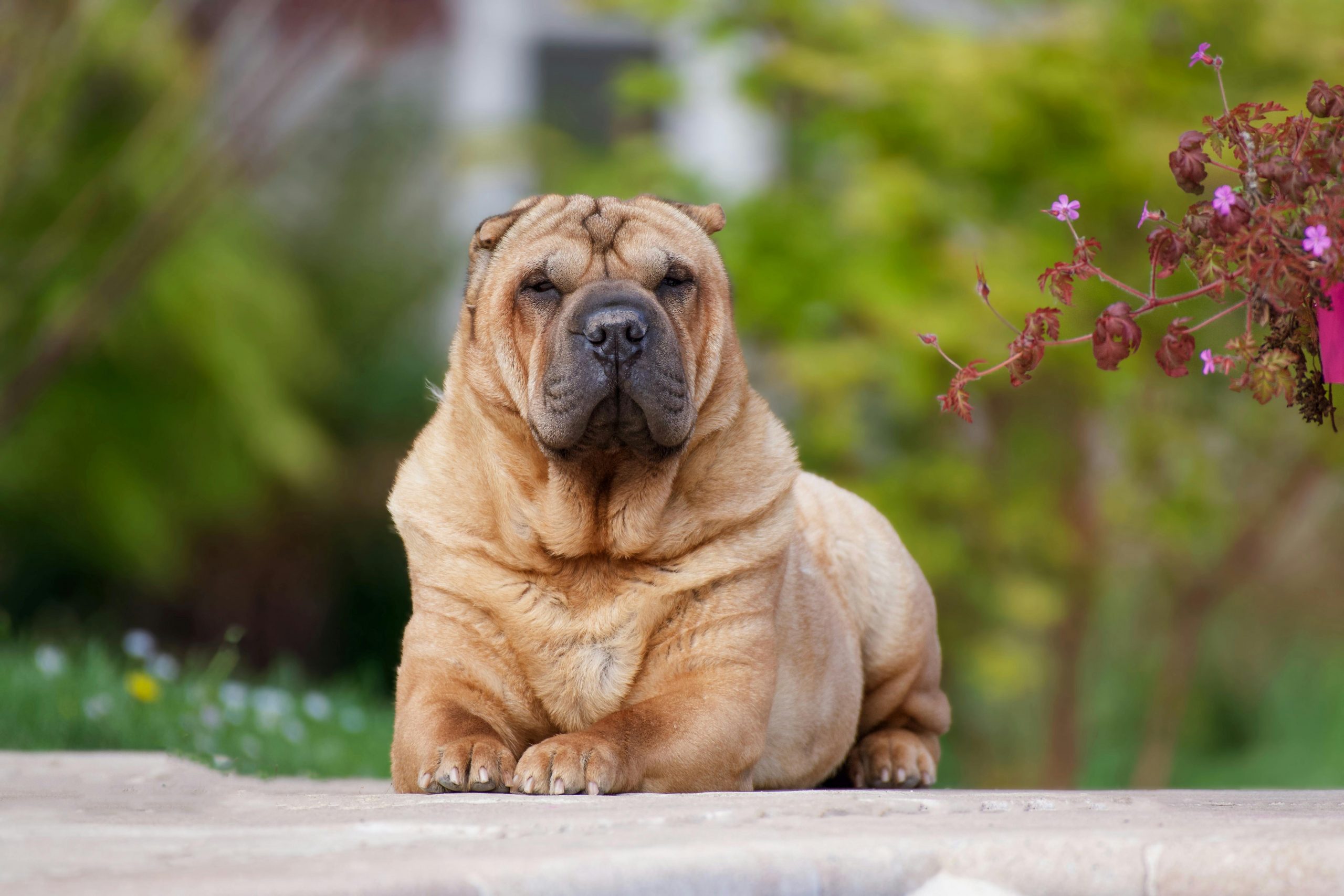
4. Basenji
The Basenji, often referred to as the “barkless dog,” is known for its unique vocalizations and high energy levels. Despite their playful nature, Basenjis have a pronounced independent streak and can be selective about their human companions. They tend to form strong bonds with adults who share their active lifestyle but may not have the patience for the loud and unpredictable behavior of children. Basenjis require attentive training and socialization, as their intelligence and curiosity can lead them into mischief. Adults who appreciate the breed’s quirks and are committed to their care will find a loyal and entertaining companion in a Basenji.
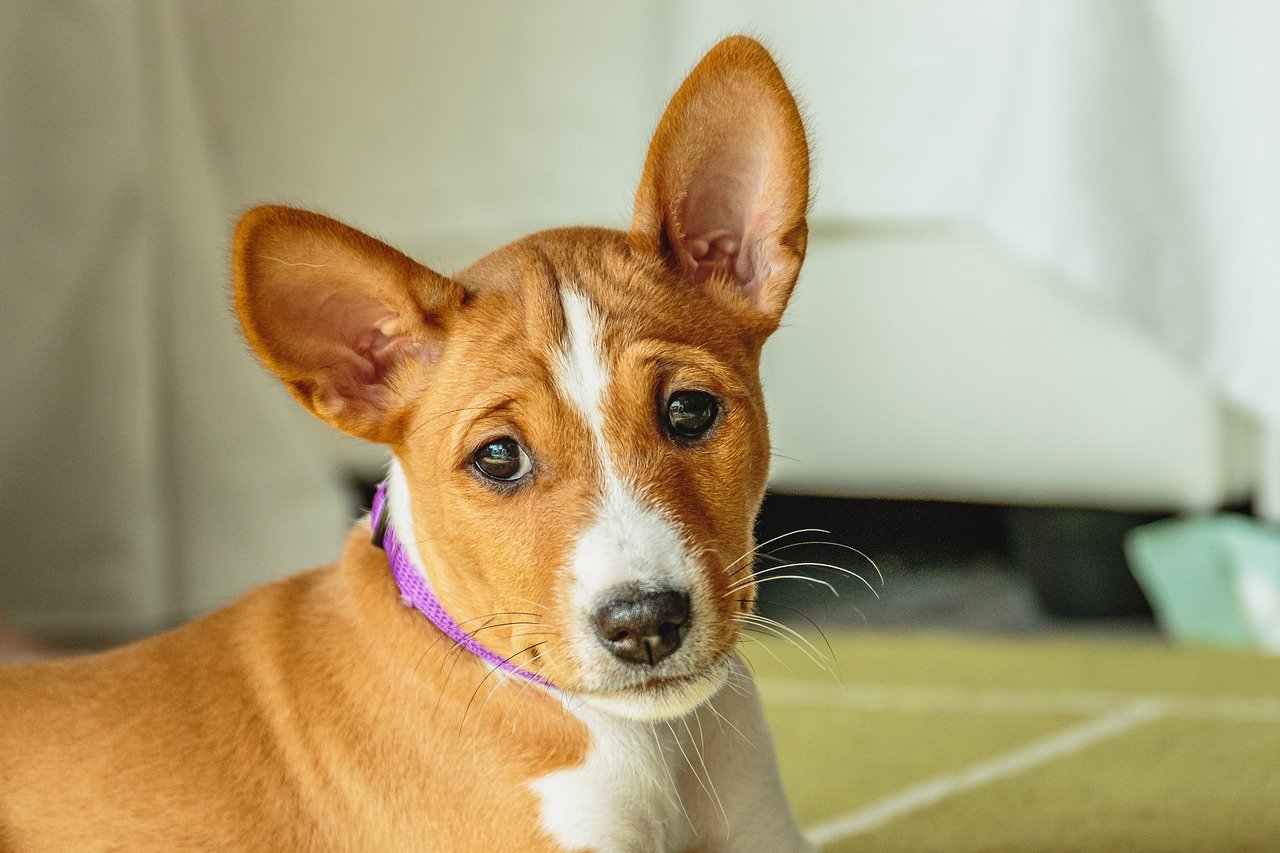
5. Saluki
Salukis, one of the oldest known breeds, carry themselves with an air of grace and dignity. These sight hounds are known for their gentle demeanor and attachment to their human families, often forming a particularly close bond with one individual. While they are gentle and affectionate, Salukis prefer the calm and measured approach of adults to the often erratic energy of children. Their need for regular, vigorous exercise aligns well with active adults, and their sensitive nature makes them more suited to a quiet, structured environment. Salukis are patient but appreciate the predictability and respect for personal space more commonly found in adult-only households.
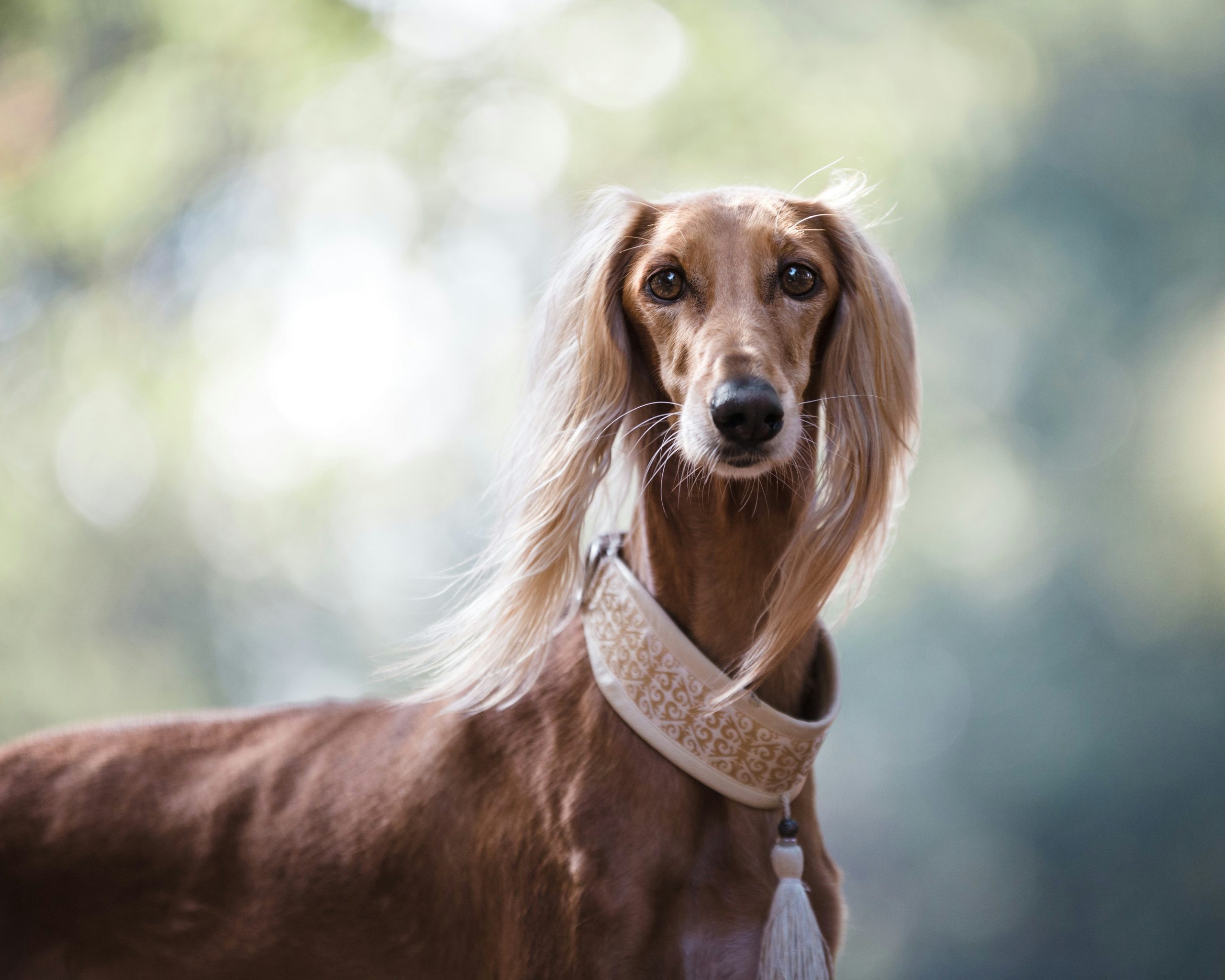
6. Shiba Inu
The Shiba Inu, Japan’s small but spirited treasure, is a breed marked by its fox-like appearance and bold personality. Shibas are known for their fiery independence, intelligence, and a strong sense of loyalty towards their owners. However, they possess a temperament that can be challenging around children. Their intolerance for rough handling and a propensity to guard their food and toys make them better suited for adult companionship. The breed’s notorious “Shiba scream,” a loud and high-pitched vocalization, can be triggered by discomfort or distress, often a result of overly enthusiastic children. For adults, the Shiba Inu can be a delightful and amusing companion, offering a balance of affection and autonomy. Their manageable size and grooming needs, along with their spirited and confident demeanor, make them well-suited for a mature household dynamic.

7. Borzoi
The Borzoi, a breed known for its elegant build and swift running capabilities, is as independent as it is beautiful. This breed, originally bred for hunting by Russian nobility, has a reserved nature and prefers the companionship of adults who respect its space and independence. Borzois have a gentle demeanor but are not overly demonstrative in their affections, often choosing to quietly coexist alongside their owners rather than seeking constant attention. Their long, silky coat requires regular maintenance, and their exercise needs are significant, given their history as hunting dogs. Adults who understand and appreciate the Borzoi’s need for both physical activity and quiet downtime will find in them a noble and dignified companion. Their preference for adults stems from a need for consistency, respect for their independence, and a mutual understanding of space and quiet.
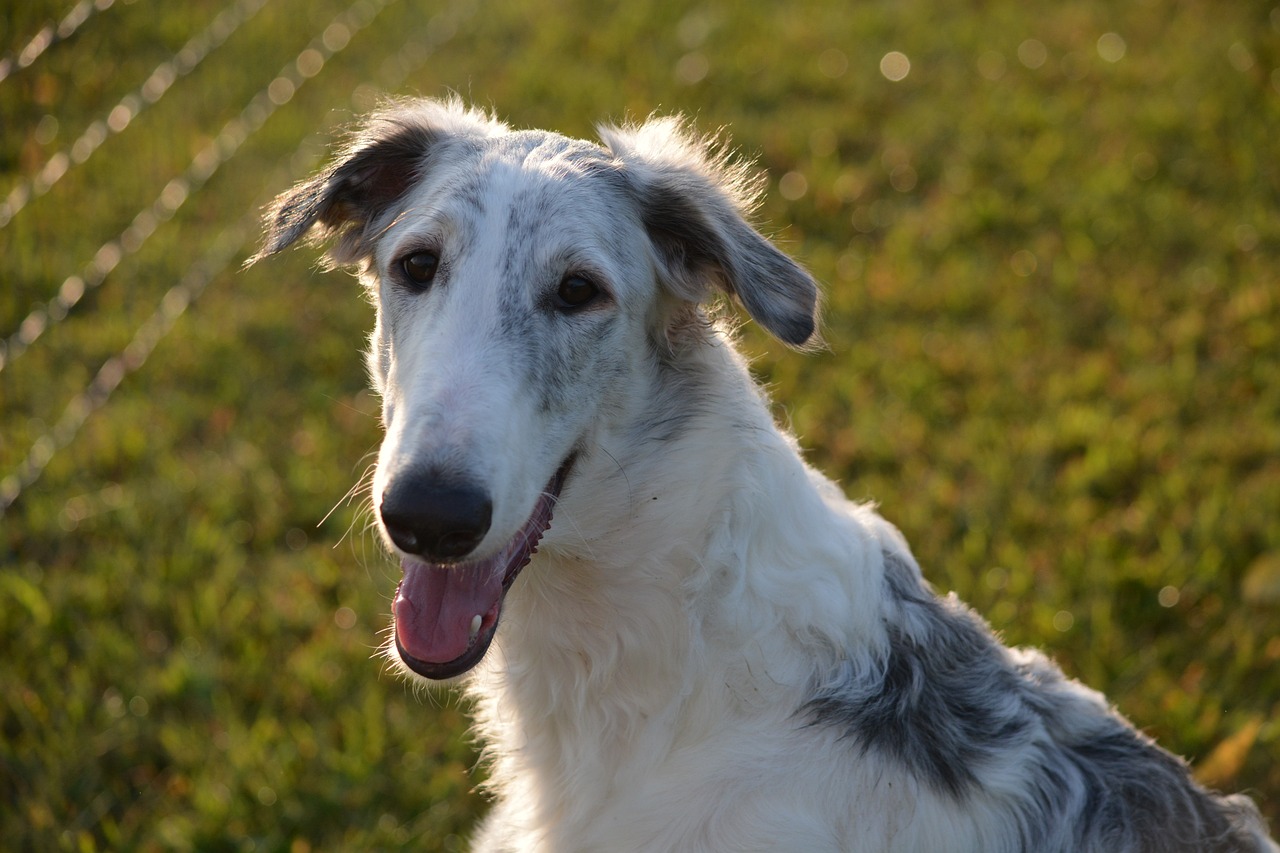
In selecting a dog breed that prefers the company of adults over children, it’s essential to consider not just the breed’s temperament but also the lifestyle and environment the owner can provide. These breeds, known for their independent natures, intelligence, and in some cases, reserved demeanors, thrive in environments where their needs for space, quiet, and mental stimulation are met. Adults who can provide a consistent routine, respect the dog’s boundaries, and invest time in understanding and meeting their specific needs will find a loyal and affectionate companion in these breeds.
 Toledo, United States.
Toledo, United States.